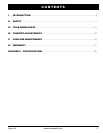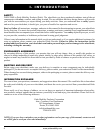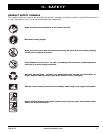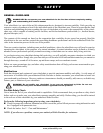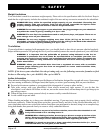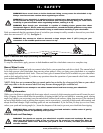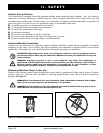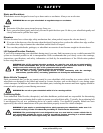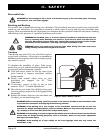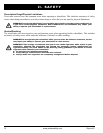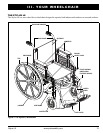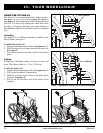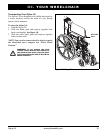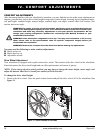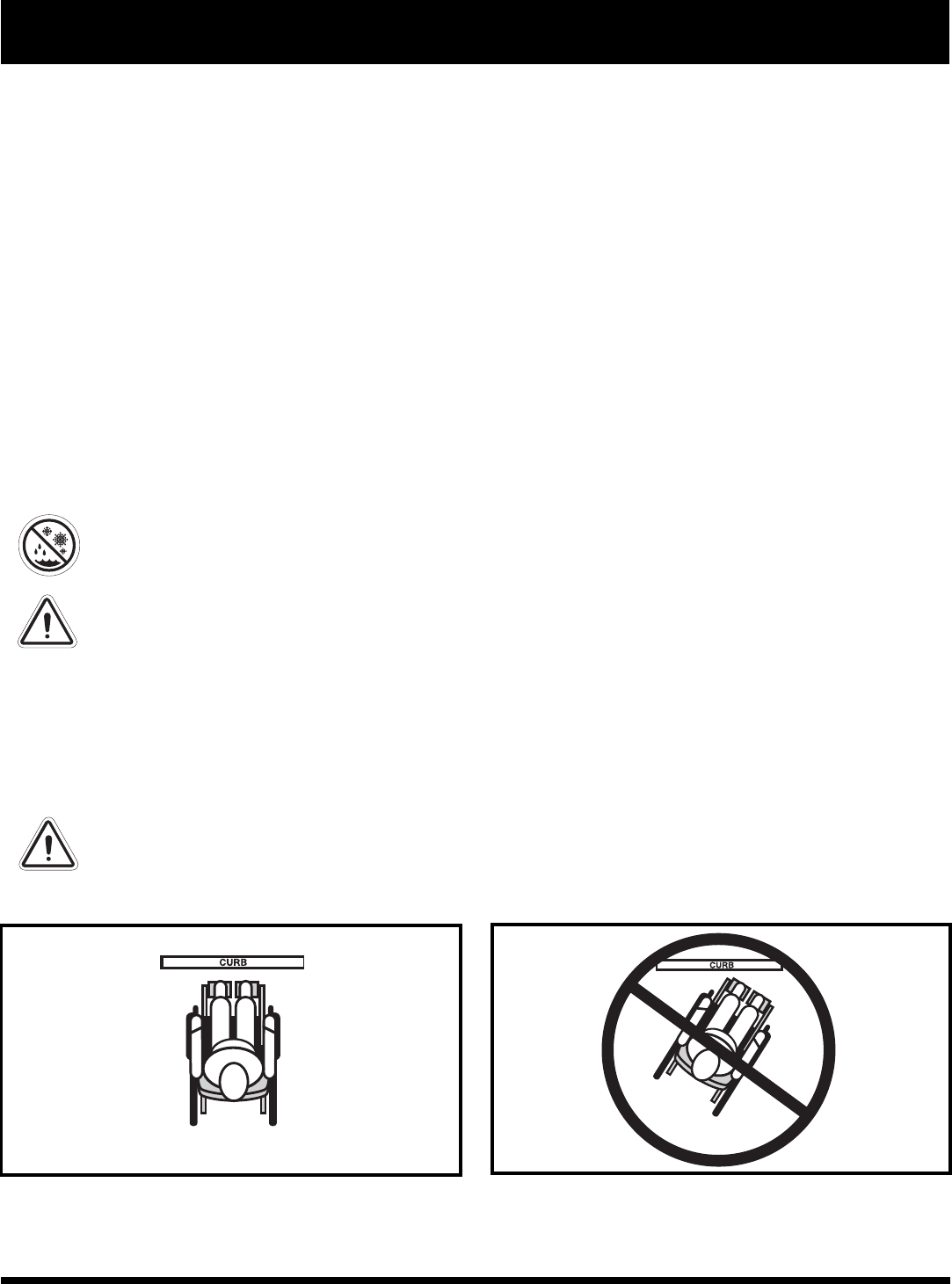
Stylus LS www.pridemobility.com 9
Outdoor Driving Surfaces
Your wheelchair is designed to provide optimum stability under normal driving conditions—dry, level surfaces
composed of concrete, blacktop, or asphalt. However, Pride recognizes that there will be times when you will
encounter other surface types. For this reason, your wheelchair is designed to perform admirably on packed soil,
grass, and gravel. Feel free to use your wheelchair safely on lawns and in park areas.
Avoid driving on uneven terrain and/or soft surfaces.
Avoid tall grass that can entangle the running gear.
Avoid loosely packed gravel and sand.
Avoid uneven surfaces.
Do not use your wheelchair in fresh or salt water.
Do not use your wheelchair at the edge of a stream, lake, or ocean.
If you feel unsure about a driving surface, avoid that surface.
Inclement Weather Precautions
Exposure of your wheelchair to inclement weather conditions should be avoided whenever possible. If suddenly
caught up in rain, snow, severe cold or heat while operating your wheelchair, proceed to shelter at the earliest
opportunity. Thoroughly dry your wheelchair before storing or operating your wheelchair.
PROHIBITED! Operating in rain, snow, salt, mist/spray conditions, and on icy/slippery surfaces
can have an adverse affect on your wheelchair. Maintain and store your wheelchair in a dry and
clean condition.
WARNING! Prolonged exposure to hot or cold conditions may affect the temperature of
upholstered and non-upholstered items on the wheelchair, possibly resulting in skin irritation.
Exercise caution when using the wheelchair in extremely hot or cold conditions or when
exposing your wheelchair to direct sunlight for prolonged periods of time.
Stationary Obstacles (Steps, Curbs, etc.)
Proceed with extreme caution when driving near raised surfaces, unprotected ledges and/or drop-offs (curbs,
porches, stairs, etc.). Be sure your wheelchair is traveling perpendicular to any curb you may be required to
navigate. See figure 2.
WARNING! Do not attempt to have your wheelchair climb or descend an obstacle that is higher
than 2 in. (5 cm) unless you have the assistance of an attendant.
WARNING! Do not attempt to have your wheelchair proceed backward down any step, curb, or
other obstacle. This may cause the wheelchair to tip.
II. SAFETY
Figure 2. Correct Curb Approach Figure 3. Incorrect Curb Approach





